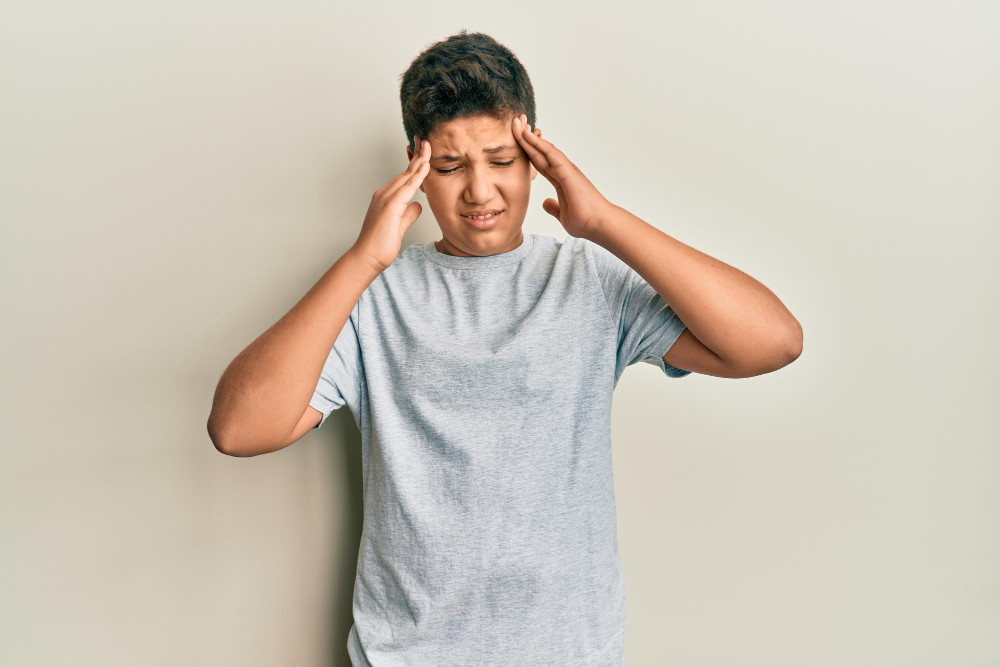Sakit kepala bisa dipicu oleh gaya hidup seperti kurang tidur, stres, hingga pilihan makanan Anda sehari-hari. Mengonsumsi makanan asin atau yang mengandung garam tinggi sering dianggap sebagai pemicu sakit kepala. Bagaimana faktanya? Simak penjelasannya dalam artikel berikut.
Penelitian Tentang Hubungan Garam dengan Sakit Kepala
Terlalu banyak mengonsumsi makanan asin bisa menjadi salah satu faktor penyebab sakit kepala yang Anda alami. Namun para ahli masih meneliti mengenai hubungan garam dengan sakit kepala.
Beberapa penelitian mengungkapkan bahwa kekurangan garam (natrium) bisa memicu sakit kepala, namun penelitian lain mengungkapkan hal sebaliknya, yaitu konsumsi garam tinggi dikaitkan dengan terjadinya sakit kepala yang lebih rendah.
Beberapa penelitian mengenai hubungan garam dengan sakit kepala antara lain:
Garam dengan Sakit Kepala dan Hipertensi
Sebuah penelitian mengungkapkan bahwa pengidap hipertensi yang mengonsumsi makanan rendah garam (natrium) mengalami sekit kepala lebih sedikit dari orang yang banyak mengonsumsi garam. Peserta secara acak ditugaskan untuk mengikuti diet DASH, yaitu diet rendah natrium dan fokus pada buah-buahan, sayuran, biji-bijian utuh, dan makanan yang rendah lemak jenuh.
Hasilnya, kelompok tersebut lebih sedikit mengalami sakit kepala daripada mereka yang mengonsumsi makanan tinggi natrium. Para ahli menyimpulkan, mengurangi asupan garam dapat menurunkan risiko sakit kepala pada pengidap hipertensi.
Baca Juga: Selain Kafein, Makanan Ini Dapat Memicu Migrain
Garam dan Sakit Kepala Migrain
Terdapat beberapa penelitian mengenai asupan garam dengan sakit kepala migrain yang menunjukkan hasil berbeda-beda. Sebuah penelitian di tahun 2015 yang meneliti 650 pengidap migrain selama 6 bulan mengungkapkan bahwa orang yang mengurangi konsumsi karbohidrat dan meningkatkan asupan garam mengalami lebih sedikit migrain.
Penelitian lain di tahun 2021 juga menyebutkan bahwa kadar garam yang lebih tinggi berhubungan dengan sakit kepala migrain yang lebih lama dan lebih parah.
Namun demikian, dilansir dari Medical News Today, penelitian lain mengungkapkan bahwa garam berpotensi untuk meredakan migrain. Sebuah penelitian lama tahun 2016 menyebutkan bahwa kemungkinan riwayat migrain menurun dengan meningkatnya asupan garam (natrium) dalam makanan. Penulis menyebutkan bahwa garam dalam makanan memodulasi regulasi natrium ekstraseluler di otak sehingga meredakan migrain.
Para peneliti mengungkapkan, masih diperlukan penelitian lebih jauh mengenai hubungan garam dengan sakit kepala dan hipertensi. Namun jika Anda mengalami hipertensi dan sering mengalami sakit kepala, Anda dapat mencoba diet DASH atau pola makanan rendah garam yang dipercaya mampu menjaga tekanan darah tetap stabil.
Baca Juga: 5 Tips Berolahraga bagi Pengidap Migrain
Tips Mengurangi Asupan Garam
Natrium atau garam dibutuhkan untuk menjaga tekanan darah dan memelihara keseimbangan cairan, namun sebaiknya Anda tidak mengonsumsi garam berlebihan. Kelebihan garam dapat menyebabkan perut kembung, tubuh bengkak karena menahan cairan, dan berat badan bertambah.
Dilansir dari NHS, orang dewasa dianjurkan tidak mengonsumsi garam lebih dari 6 gram sehari atau sekitar 1 sendok teh. Takaran ini sudah termasuk garam yang sudah ada dalam makanan kita dan garam yang ditambahkan selama dan setelah memasak.
Untuk mengurangi asupan garam, Anda bisa mencoba cara berikut:
- Mengganti garam dengan rempah-rempah lainnya seperti lada hitam, bawang putih, cabai, atau air jeruk lemon
- Membatasi jumlah garam yang ditambahkan saat memasak dan makan
- Mengurangi asupan makanan beku dan makanan olahan yang kaya garam
- Memperbanyak konsumsi camilan sehat seperti buah atau sayuran tanpa garam
Para ahli masih melakukan penelitian mengenai hubungan antara garam dengan sakit kepala. Jika Anda merasa sakit kepala akibat mengonsumsi makanan asin, sebaiknya batasi konsumsi garam.
Konsultasikan ke dokter jika Anda sering mengalami sakit kepala akibat makan makanan tertentu. Anda juga bisa memanfaatkan fitur konsultasi pada aplikasi Ai Care yang dapat diunduh melalui App Store atau Play Store.
Mau tahu informasi seputar penyakit lainya? Cek di sini, yah!
- dr Nadia Opmalina
Doherty, C. (2023). Does Too Much Salt Cause Headaches?. Available from: https://www.verywellhealth.com/does-salt-intake-cause-headaches-1719864
Martin. L. (2024). What to know about salt for migraine. Available from: https://www.medicalnewstoday.com/articles/salt-for-migraine
Jewell, T. (2024). Does Salt Therapy Help Relieve Migraine Symptoms?. Available from: https://www.healthline.com/health/migraine/salt-water-for-migraine
Brown R. B. (2021). Sodium Chloride, Migraine and Salt Withdrawal: Controversy and Insights. Medical sciences (Basel, Switzerland), 9(4), 67. https://doi.org/10.3390/medsci9040067











